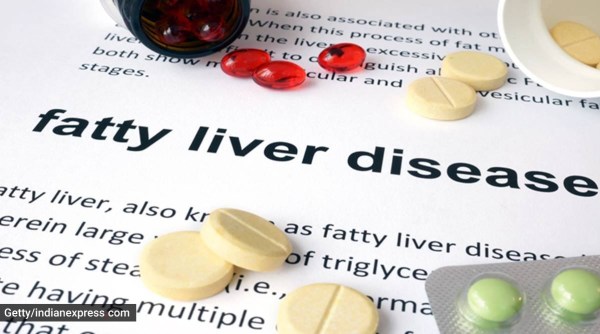Liver panel tests: Know when and why they are recommended (and for whom)
After helping you decode the values on a lipid profile test report, we are back with an explainer on liver function tests, which are commonly advised to assess the health of the liver. Given that the most common cause of liver abnormality today is fatty liver disease — where fat can deposit in the liver due to alcohol consumption or lifestyle changes — it is paramount to understand all about these tests and why and when they are recommended.
What are these tests?
Liver function tests, commonly known as liver chemistries, assess the health of the liver by detecting the amounts of proteins, enzymes, and bilirubin in the circulatory system. “They can also track the progression or treatment of an ongoing condition. Depending on the test, unusually high or low levels of these enzymes or proteins can suggest a liver disease,” said Dr Mangesh Borkar, consultant – medical gastroenterologist, Manipal Hospital, Kharadi, Pune.

Why and when it is recommended?
If there is a possibility of viral exposure, a liver function test is usually recommended to check for liver damage from viruses such as hepatitis B and C. Also, it is used to track the adverse effects of specific pharmaceuticals, including statins, NSAIDs (Nonsteroidal anti-inflammatory drugs), antibiotics, antiseizure meds, and tuberculosis therapies.
“The test aids in the monitoring of liver disease and treatment efficacy in those who already have it. likewise, people with a family history of liver disease, such as fatty liver disease, or those exhibiting indications of liver problems are encouraged to take it,” said Dr Borkar.
All these tests help determine if there is any damage to the liver, explained Dr Dheeraj Karanth C, consultant, medical gastroenterology, Manipal Hospital, Millers Road, Bangalore. “In rare cases, when liver functions are abnormal, we check the possibilities of rare diseases like Wilson’s disease by further investigating serum ceruloplasmin. In some cases, iron deposition can also cause liver abnormality, which can be detected by testing serum ferritin. So, an entire liver panel includes these tests to identify any liver issues,” elaborated Dr Karanth.
Signs and symptoms
1) High enzyme levels: Indicate liver disease
2) Increased bilirubin levels: This may signal the possibility of liver damage.
3) Low albumin: Indicates malnutrition or an infection of the liver.
Key tests included
– ALT (Alanine Aminotransferase): Indicates liver damage.
– AST (Aspartate Aminotransferase): Suggests liver or muscle damage.
– ALP (Alkaline Phosphatase): High levels suggest bile duct or liver issues.
– GGT (Gamma-Glutamyl Transferase): Indicates bile duct problems or liver damage.
– Total and Direct Bilirubin: Elevated levels can indicate jaundice or liver dysfunction.
– Albumin: Low levels suggest liver disease or malnutrition.
– Total Protein: Abnormal levels may signal liver or kidney issues.
 Experts say alcohol intake remains a common cause of liver disease in India (Source: Getty Images/Thinkstock)
Experts say alcohol intake remains a common cause of liver disease in India (Source: Getty Images/Thinkstock)
Who should do liver panel tests?
It is not usually advised to perform a liver panel as a standard test on everyone, said Dr Borkar.
It is generally, it is suggested for:
*People who exhibit liver disease signs, such as jaundice or stomach pain.
*Those who take liver-damaging drugs or have a history of severe alcohol consumption.
*Patients who have diabetes, obesity, or hepatitis infection as risk factors for liver disease.
Individuals receiving medical care that could have an impact on liver function.
How to read the reports?
For a layman, reading a liver function test can be very challenging, said Dr Karanth. “However, when undergoing a liver function test in any lab, they should look at the range of enzymes such as AST, ALT (formerly known as SGOT and SGPT), ALP, and GGT. If these enzymes are abnormal and out of range (above the normal range), they should immediately consult a doctor which will help determine if the abnormality is due to hepatitis from a virus, fat, or metal deposition disease,” said Dr Karanth.
📣 For more lifestyle news, click here to join our WhatsApp Channel and also follow us on Instagram
Disclaimer: The copyright of this article belongs to the original author. Reposting this article is solely for the purpose of information dissemination and does not constitute any investment advice. If there is any infringement, please contact us immediately. We will make corrections or deletions as necessary. Thank you.
